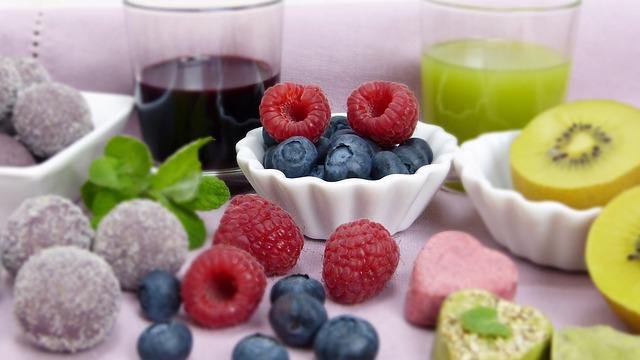Vitamins and natural nutrients that fight aging
You want to reduce the effect of aging in your body? Yet, after spending months applying the creams, you've not achieved the expected results.
The application of serums and creams slows down the aging process for some time, but they can't stop it. Some anti-aging substances can't be absorbed via the skin, making topical application ineffective. While vitamins operate from the inside out, they promote both inner and outer health. The most effective anti-aging treatment is the use of vitamins and topical creams.
Vitamins are disregarded in the fight against aging, but research shows they are essential in the fight.
Vitamins and supplements help us make sure we've got the nutrients we need, especially if we are lacking. Experts claim that many individuals do not get enough vitamin D or B12. It may lead to problems associated with aging and poor health that could have been prevented.
But when it comes to anti-aging, not all vitamins are created equal. Some vitamins are more effective than others at reversing the effects of aging. To help you achieve a young glow, wrinkle-free skin, and a refreshed sense of wellbeing.
So, here are 8 vitamins and nutrients for anti-aging:
1. Collagen:
We know collagen as the king of anti-aging. However, you can jumpstart this process by adding collagen nutrients to your diet. As we age, our bodies create less collagen, which causes wrinkles and drooping of the skin. Collagen is a protein that aids in the skin's upkeep. Collagen synthesis is said to slow down as early as our early twenties. But we may ensure that our levels remain high by taking nutrients when our systems slow the manufacture of collagen. Supplemental collagen has been shown to increase skin suppleness and minimize wrinkles. Collagen should be your anti-aging supplement of choice. But given that so many others perform almost as well, why would you pick one?
2. Vitamin A:
This super vitamin protects and delays the signs of aging on both the inside and exterior of your body. Retinol, another name for vitamin A, is the major component of many anti-aging pills and serums. Vitamin A is not a substance that the human body produces. We must get it through dietary intake. Vitamin A is the industry standard for anti-aging. There are several reasons for doing that. Tretinoin, a derivative of vitamin A, has to increase collagen synthesis and lessens wrinkles. Your insides benefit from vitamin A as much as your skin does. It supports healthy heart and lung function, higher immunity, and improved vision. Your internal organs also age, but vitamin A can help you delay the process.
3. vitamin E:
Vitamin E is so essential for immune system regulation. Vitamin E is present in our bodies but is depleted by sunlight, which is one of the skin’s first lines of defense. This is bad because free radicals, unstable atoms that damage cells and have been associated with aging, are neutralized by vitamin E. Besides preventing wrinkles and fine lines, vitamin E can also produce collagen, accelerating cell renewal and forming new skin. According to studies, taking vitamin E supplements improves defense against collagen deterioration.
4. Vitamin D:
One way we generate vitamin D is through exposure to sunlight. We know it as the “sunshine vitamin.” But vitamin D is also a potent anti-aging supplement, linked to increased longevity. According to research, by shielding the skin from UV light, vitamin D is also beneficial in delaying the onset of premature aging. While vitamin D’s anti-aging properties have long gone undetected. Recent studies have revealed that vitamin D is far more potent than believed. A 2016 study found that vitamin D can increase longevity by 33%.
5. Resveratrol:
Resveratrol is one of the effective nutrients against aging. It's time to get to know this potent little antioxidant. In addition to preventing wrinkles and fine lines, resveratrol is what gives grapes and raspberries their distinctive red color. While eating berries will provide you with plenty of resveratrol, taking a supplement is a lot simpler way to include it in your diet. One of the main causes of skin aging is exposure to UV light, which includes sunshine. You should still take advantage of the sunshine, though. It has been discovered that resveratrol shields skin against UV-induced accelerated aging. It has also been discovered that resveratrol lengthens life. Not bad for a mysterious vitamin.
6. Zinc:
Zinc plays several critical roles in the human body and is an essential trace mineral found in red blood cells. Our bodies do not produce it. As a result, we must consume zinc as dietary nutrients or food. Zinc is essential for many processes in our bodies, such as protein synthesis, immune system control, and wound healing. However, zinc is in the struggle against aging. Deficits in zinc have been shown to hasten aging while lowering the incidence of age-related diseases and infections.
7. Selenium:
A trace mineral called selenium guards against vitamin E deficiency. Diet and supplements are two ways to get it. Selenium may be helpful in preventing age-related problems and diseases. Selenium has been associated with longer telomeres, which are the caps on the ends of our chromosomes that regulate how our cells age.
8. Curcumin:
Recent studies are showing the anti-aging benefits of curcumin. Curcumin is a potential treatment for Alzheimer’s disease. It has been discovered to have a favorable effect on a variety of aging process factors. How much curcumin returns to the bloodstream after consumption is still up for debate. Because of this, it ranks low on the list despite having many anti-aging advantages.
In conclusion, vitamins can’t replace a healthy diet, regular exercise, and SPF for keeping your skin protected. The most effective way to promote longevity and maintain a youthful appearance for longer is to take good care of yourself, manage your stress, and adhere to an effective skin care program.

Comments
Post a Comment